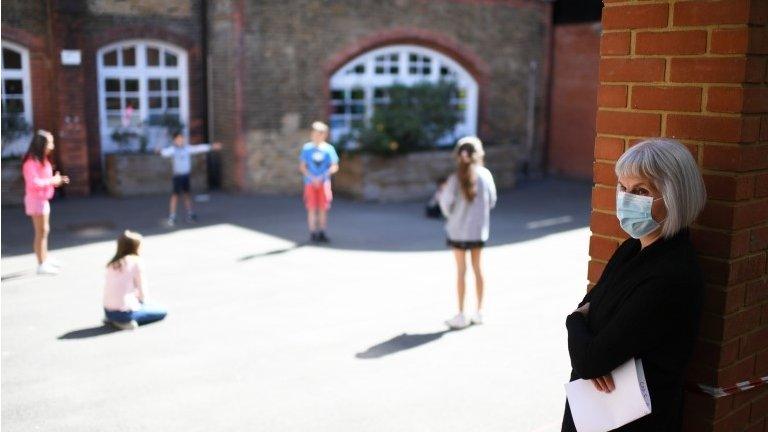Coronavirus: Some pupils 'could face school transport problems'
- Published
Meira Woosnam has three sons who all go to different schools
Some pupils could face problems going back to school because of inconsistencies in transport provision across Wales, a teachers' union fears.
Schools reopen on 29 June but the Ucac union thinks some children may not be able to go unless there is transport.
Some councils will only run for specific groups of pupils, and many have encouraged children to travel with parents or make their own way in.
The Welsh Government said it published comprehensive guidance on transport.
Ucac has called for children not to be disadvantaged because they do not live close enough to walk to school and their parents cannot drive, or do not own a car.
It has also highlighted Welsh-medium pupils, who it says often have to travel longer distances, particularly in rural areas.
One transport provider told BBC Radio Wales school bus drivers were concerned about catching the virus.
Chris Owens, managing director of Llandudno-based Alpine Travel, said: "Our biggest concern is that the Welsh Government hasn't been clear on the use of face coverings.
"The UK government have made it very clear that they must be used on public transport whereas the Welsh Government haven't been as clear.
"Yesterday we received guidance that students would not be expected to wear face coverings when using our school coaches which to be frank is very disappointing for the safety of our staff."
Rebecca Williams, Ucac's deputy general secretary, said: "I think the potential groups are those who don't own a car, or obviously you have parents who don't drive.
"Also, I think the Welsh medium sector will need some special consideration because the distances are that much greater.
"It may just logistically not be possible for parents to take their children there, even if they do drive."
She added: "Whatever arrangements are put in place, we need to be absolutely confident that we're not discriminating against any group of pupils who would want to return.
"What we need to ensure is that there isn't too much inconsistency between local authorities. I think the stronger steer that can be given at a national level from Welsh Government, the better."
How does school transport vary?
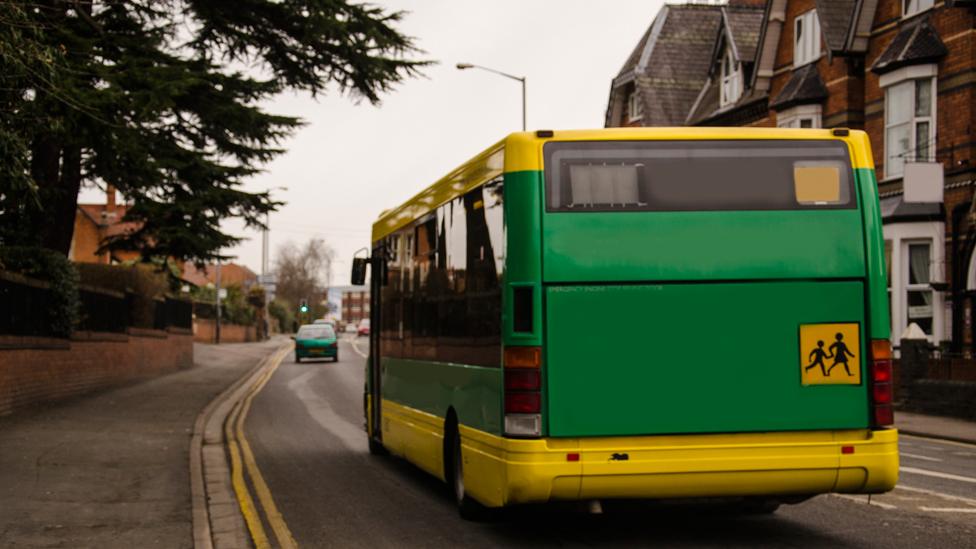
The Welsh Government said it published comprehensive guidance on transport
While councils across Wales have been issuing guidance regarding school transport, it varies between different authorities:
Cardiff council is promoting "active travel," encouraging parents and pupils to "travel to school safely on foot, by bike or by scooter," or by "other means, where possible".
But it added: "For those eligible for free school transport and who cannot attend school without it, the council is working through plans as part of the council's comprehensive school restart planning."
In Newport though, there will be no mainstream transport provision, while plans are under way to provide it for "a prioritised group of pupils with complex needs and disabilities who cannot find alternative methods of transport".
Ceredigion council is still working on its plan, but has said any school transport "should only be used when there is no other viable option available".
In Carmarthenshire, school transport "will only be provided to eligible pupils if absolutely necessary".
'More guidance would've been helpful'
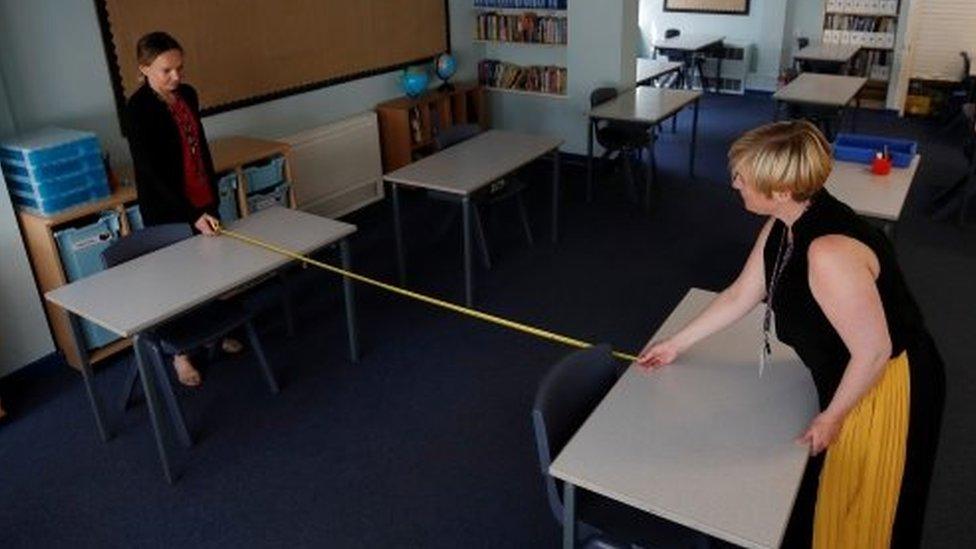
Primary school teachers have been measuring distances inside classrooms in preparation
Steve Jones, managing director of Llew Jones Coaches in Llanrwst, Conwy, said there had been "very little" guidance from the Welsh Government on providing transport.
"The major issue at the moment is the lack of guidance from the Welsh Government," he said.
"Basically, the councils and the schools have been left to try and work something out between themselves and ourselves.
"Of course, we're flexible and we'll try our very best to make it work, but some more guidance would've been helpful."
The company usually provides about 20 school buses per day across north Wales. Some of its longer rural routes involve trips of about 40 minutes, with its longest taking an hour each way.
Mr Jones said the 2m social distancing rule means a 50-seater coach will now only be able to carry eight pupils. In an eight-seater taxi, only one pupil can be carried.
He does not plan to lay on extra coaches, because it is expected there will be "significantly less" pupils returning to school.
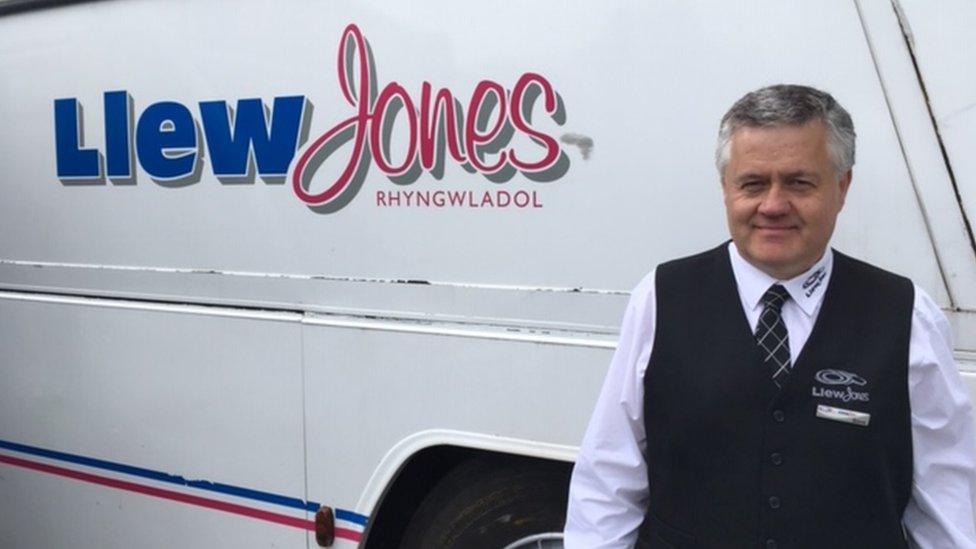
Steve Jones says they will have to carry fewer passengers due to social distancing rules
Meira Woosnam, from Abergele, Conwy, has three boys of different ages, attending different schools.
One of them is autistic and attends an additional needs unit, usually by school taxi.
However, she said: "He doesn't want to go in the taxi, because he's aware that other people will be using the taxi in between school runs and he doesn't feel comfortable and safe if somebody with COVID-19 has used the taxi before him."
Another son usually travels by school bus, while she usually drives the third to school.


Ms Woosnam, who plans to drive them all herself, added: "If the boys end up having the same days that they need to go into school, I'll have a bit of a logistic nightmare, with trying to get three of them to school at the same time."
She said she felt "confused and really unsure about what to do for the best as a parent", when it came to her children returning to school.
Ms Woosnam said all of her sons' schools had done an "amazing" job in trying to keep her informed, but said there had "absolutely not" been enough communication from the Welsh Government to schools.
A Welsh Government spokeswoman said: "We have published comprehensive guidance relating to the safe use of school transport and will continue to work with local authorities and transport providers to address any remaining concerns they may have.
"We've also recently announced £2m to help support local authorities to achieve active travel schemes around schools."
- Published4 June 2020

- Published19 June 2020
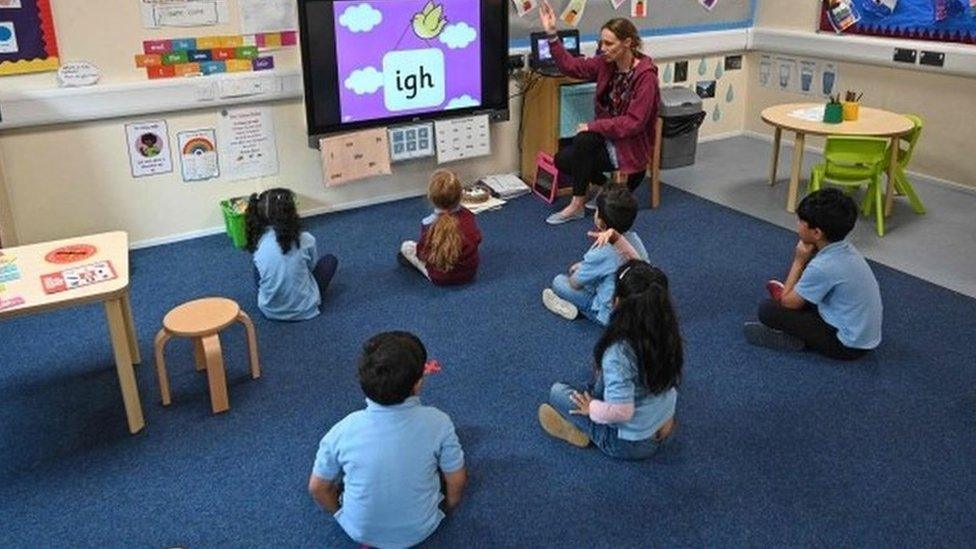
- Published20 June 2020
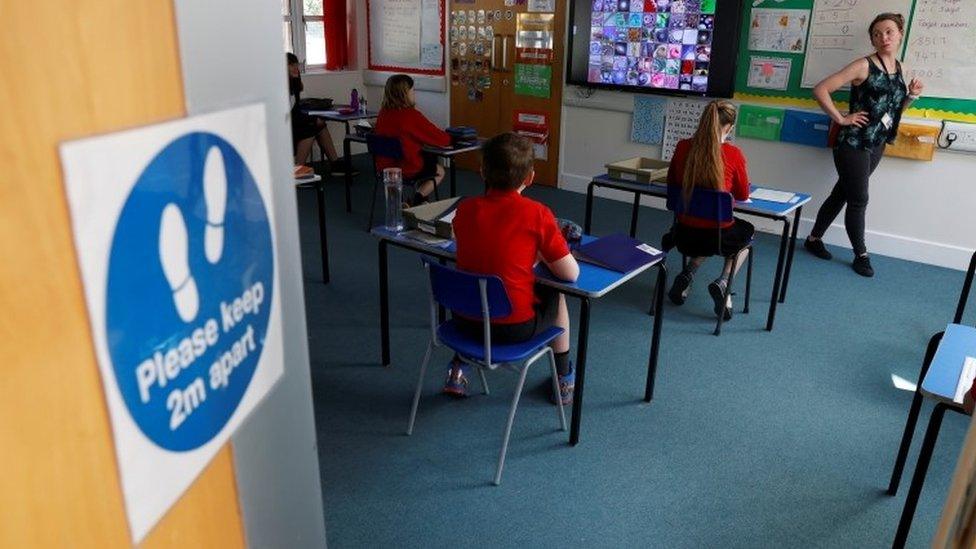
- Published24 June 2020
